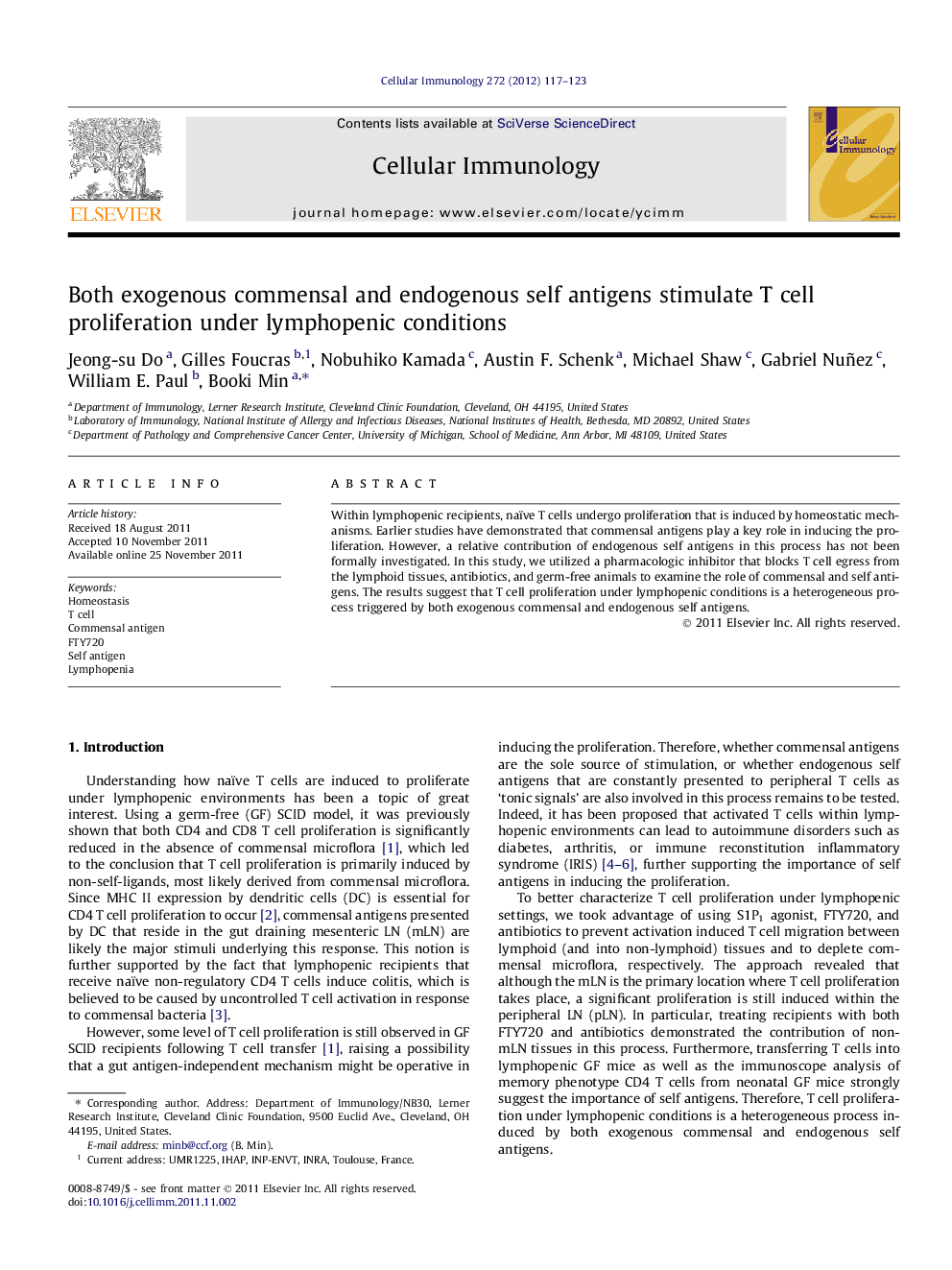| Article ID | Journal | Published Year | Pages | File Type |
|---|---|---|---|---|
| 2167379 | Cellular Immunology | 2012 | 7 Pages |
Within lymphopenic recipients, naïve T cells undergo proliferation that is induced by homeostatic mechanisms. Earlier studies have demonstrated that commensal antigens play a key role in inducing the proliferation. However, a relative contribution of endogenous self antigens in this process has not been formally investigated. In this study, we utilized a pharmacologic inhibitor that blocks T cell egress from the lymphoid tissues, antibiotics, and germ-free animals to examine the role of commensal and self antigens. The results suggest that T cell proliferation under lymphopenic conditions is a heterogeneous process triggered by both exogenous commensal and endogenous self antigens.
► Mesenteric LN is the dominant location where T cell proliferation occurs. ► T cell proliferation is enhanced following commensal depletion and FTY720 treatment. ► Spleen is dispensable for T cell proliferation. ► Gnotobiotic mice were used to demonstrate gut Ag-independent T cell proliferation.
